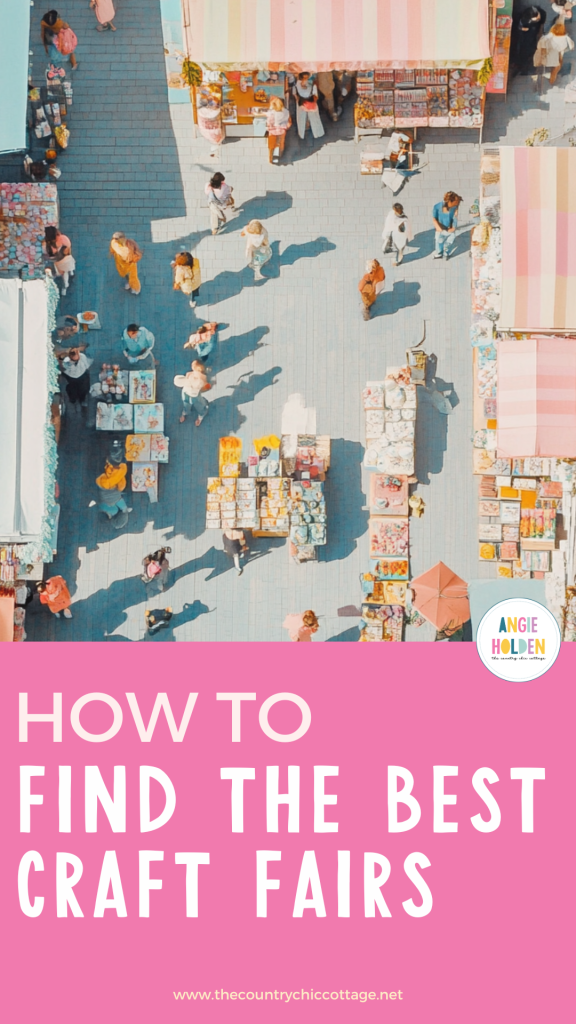If you’re looking to grow your craft business finding the best places to sell your handmade goods is important. Today I’m sharing tips for finding the best craft fairs to help ensure you’re using your time wisely.
If you have a craft business, make sure you’re tuning in to Crafting for Profit Live for small craft business tips and motivation.
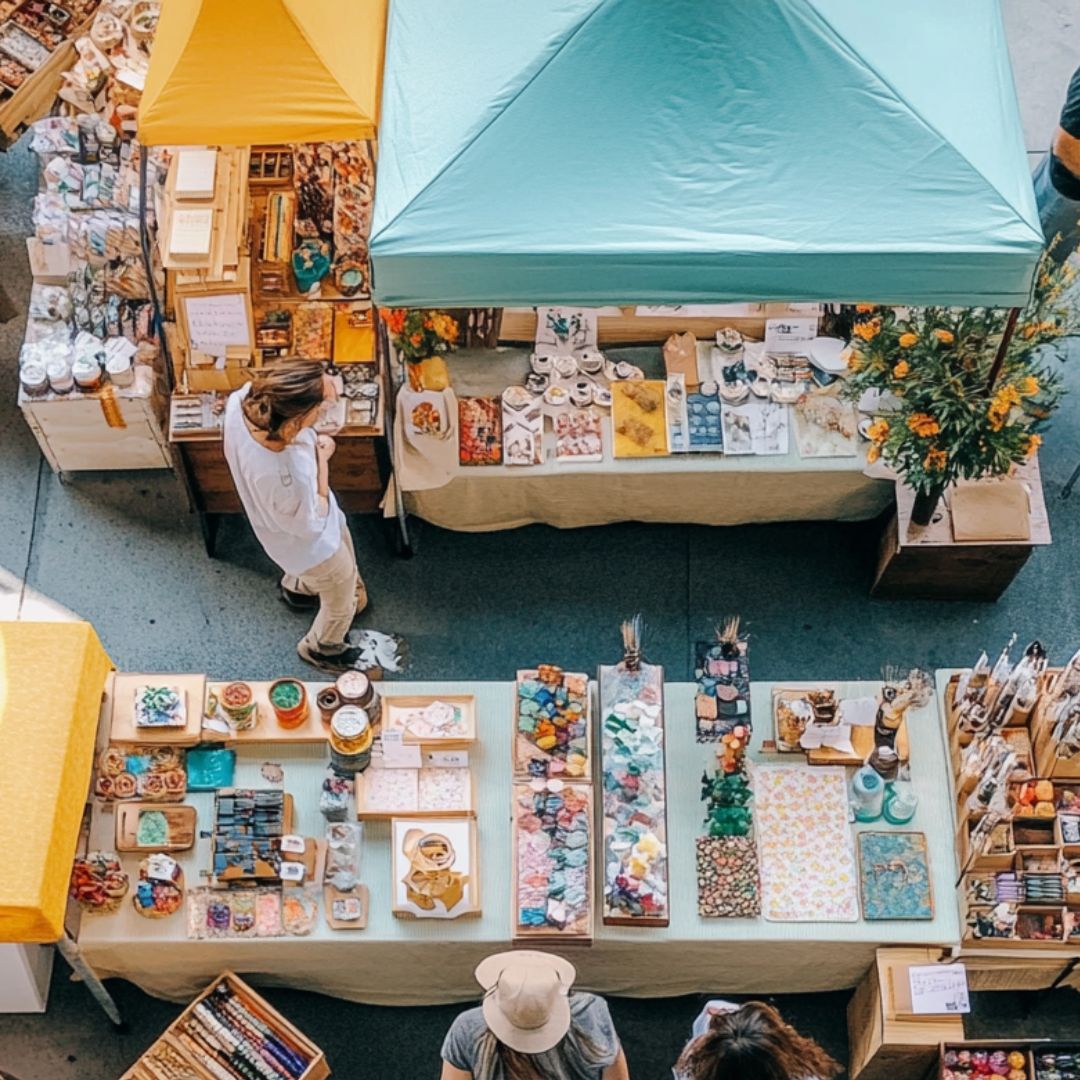
This topic is covered in the 17th episode of Crafting for Profit Live. You can watch Cori and I discuss finding the best craft fairs by pressing play on the video below.
8 Tips for Finding the Best Craft Fairs and Markets
Today I’m going to talk to you about regular craft fairs and holiday-specific craft fairs. There are some differences when the holidays hit and I want to make sure you’re prepared for everything.
1. Understanding Your Target Market
Knowing your ideal customer is important so you can make sure you’re attending craft fairs where your customers will be.
For example. if your products are eco-friendly, finding a market that focuses on sustainability will ensure customers in attendance that have the same priorities you do.
If your products are handmade, finding a craft fair that only allows handmade products means you won’t be competing with low-priced, mass-produced products.
During the holiday season, many people are shopping for gifts. Craft fairs with a strong holiday shopping focus are more likely to attract buyers who are ready to spend.
2. Research Craft Fair Reputation and Past Attendance
The best craft fairs are fairs that have a good reputation and high attendance. To find the best craft fairs you can check online reviews, check comments on social media, and reach out to fellow vendors.
Talking to vendors who have attended in the past can give you a good idea of the foot traffic. Higher foot traffic increases your chances of sales.
Other vendors can also tell you if the event has a good reputation with vendors and customers.
For holiday markets you want to focus on well-established events that have a history of attracting holiday shoppers. Shoppers tend to return to craft fairs that they had success at in previous years.
3. Location is Important
A craft fair that is in a high-traffic area is going to be a better option than one where people have to go out of their way.
In our area, we have an event called First Friday. On the first Friday of each month in the downtown area, small businesses are allowed to set up a small booth to sell their goods. This event is well-attended because people are already there and because it repeats monthly people look forward to it.
Craft fairs in more affluent areas can also bring shoppers who are ready to buy. Make sure you research the location before signing up.
During the holidays, it’s great to look for craft markets that are set up in popular shopping districts or tied to special events that bring people out.
Holiday parades, tree-lighting ceremonies, and other holiday events tend to attract more visitors who are looking to purchase holiday gifts.
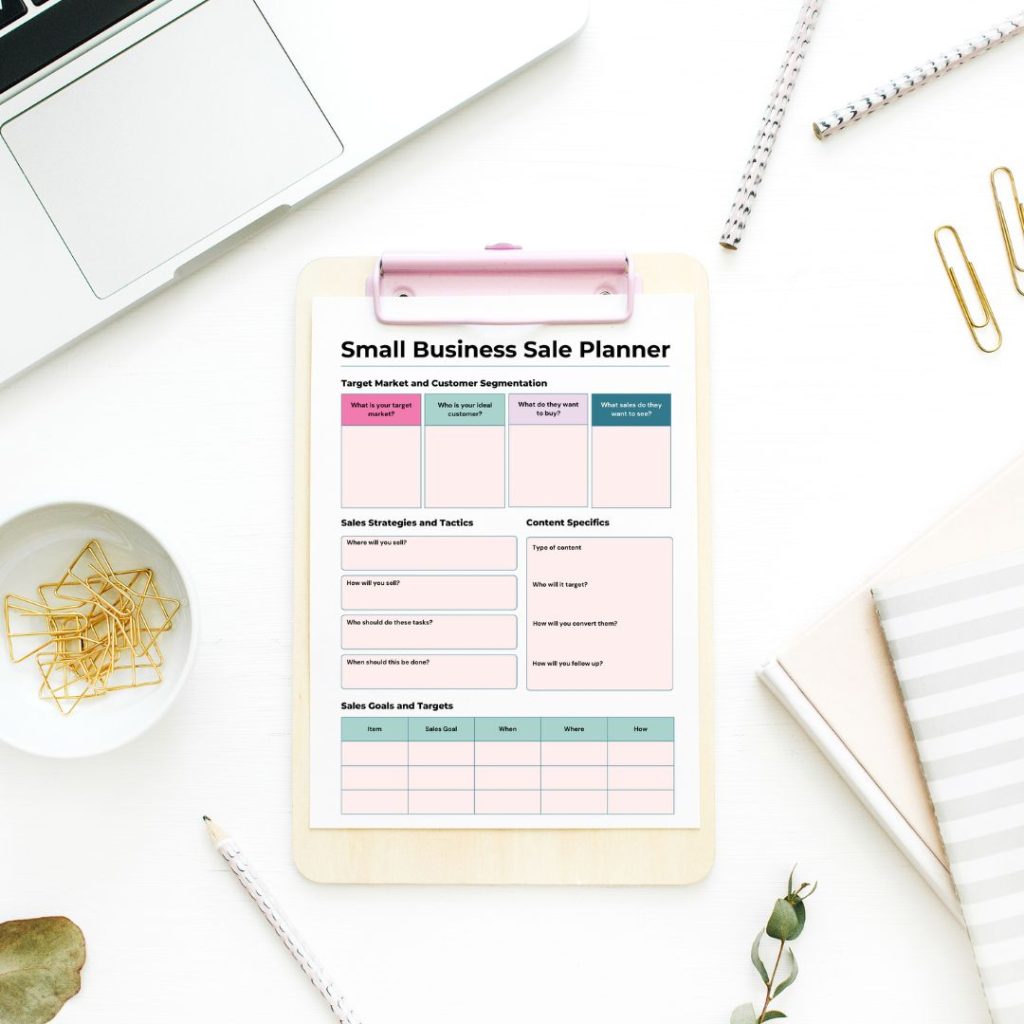
Get my free small business sale planner!
Plan your next sale using this 2 page planner and reach as many people as possible! Increase your reach and increase your sales with a well thought out plan that will have customer coming back again and again!
4. Research the Vendor Fees and Requirements
Before signing any contracts, you need to make sure the craft fair will be worth your time. The best craft fairs will have a contract that includes what size your booth can be, all fees required to be paid to them, what types of insurance or licenses are required, etc.
Some fairs have rules regarding displays, tents, and what types of products can be sold. Make sure you are in compliance in all areas before signing anything.
On top of what is required by the event, you need to calculate your own expenses. How much is it going to cost you to travel to the event, purchase supplies, and set up your booth? You want to make sure that the potential revenue is worth the investment.
Be aware that holiday fairs may have higher vendor fees than other craft fairs. Because more people are looking to sell their products during the holiday season demand is increased and the fees may be as well.
You may need to look at your pricing to see if adjustments need to be made to cover the additional costs.
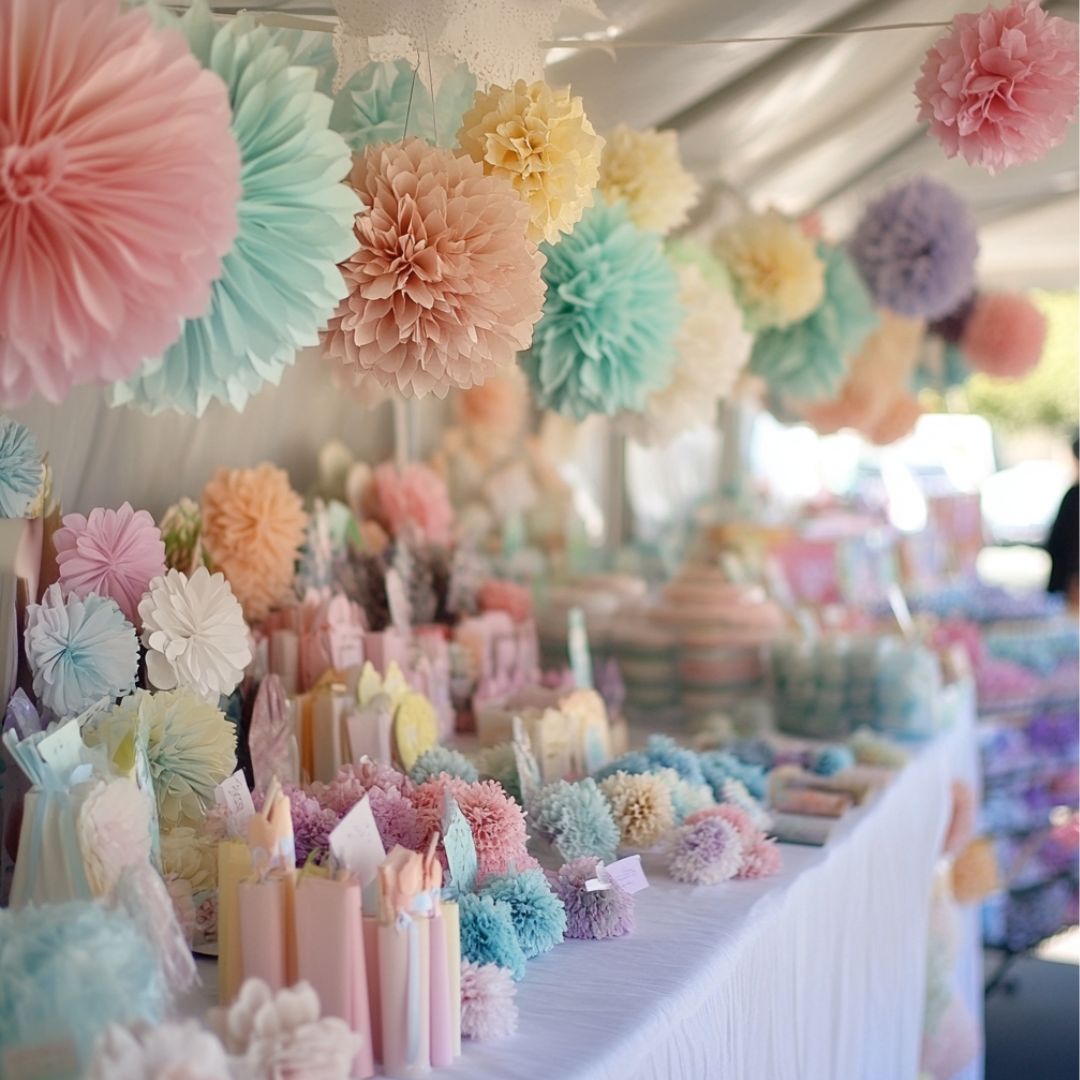
5. Research the Fair’s Marketing and Promotion
The best craft fairs will be active in promotion and advertising. Look at the craft fair’s social media and see how often they’re talking about the event. You can also ask the owners how they advertise. Do they have an email list that they reach out to? Do they work with local businesses, do they put up signs and posters?
Fairs that engage with their audience and encourage their vendors to promote the event usually have higher attendance and sales than fairs that don’t.
When it comes to the holidays promotion is even more important. During the holidays we are being advertised to constantly. The best holiday craft fairs will be promoted regularly so people can remember them over the other advertisements they’re seeing.
6. Attend Craft Fairs Before Signing Up to be a Vendor
When possible attend the craft fair as a shopper before signing up to be a vendor. This will help you get an idea of the layout, what types of products are sold, and how many people attend.
This can help you decide if your products will fit in well at the event and if there is enough foot traffic to make it worth your time.
I like to visit holiday markets to see how they are set up. Holiday shoppers are often looking for a festive atmosphere. The best craft fairs will go the extra mile to create a joyful shopping environment making it fun for shoppers to attend.
Having extras could mean fun photo ops like holiday backdrops. It could also include having Santa come to visit or make and take projects. All of these are ways to keep shoppers at the event longer.
7. Evaluate Competition and Product Fit
The best craft fairs and markets will want all of their vendors to succeed. This means researching the products each vendor is selling to make sure there isn’t a lot of overlap. This will also depend on vendors making sure to update the organizers if their product list changes.
You’ll want to ask questions about other vendors and if they offer a list so you can research yourself what others are selling.
If you’re able to attend the event as a shopper before you sign up to be a vendor, you’ll be able to see if the organizers allow multiple vendors who sell the same products.
During the holiday season, many customers are looking for unique, giftable items. Choosing craft fairs that feature a mix of vendors will bring out more customers because they can shop for many on their list in one stop.
8. Test Smaller Craft Fairs Before Big Events
If you’re new to craft fairs the best craft fair for you may be a small local event that is free or has low fees for you to attend. These events will allow you to practice talking to customers, how to set up your booth and help ease you into bigger events.
Talking to customers at these smaller events can give you an idea of what products you may want to add to your booth and get you feedback on pricing.
These smaller craft fairs are perfect for holiday time too. You can fine-tune your holiday booth display and test out new products to see which ones sell best.
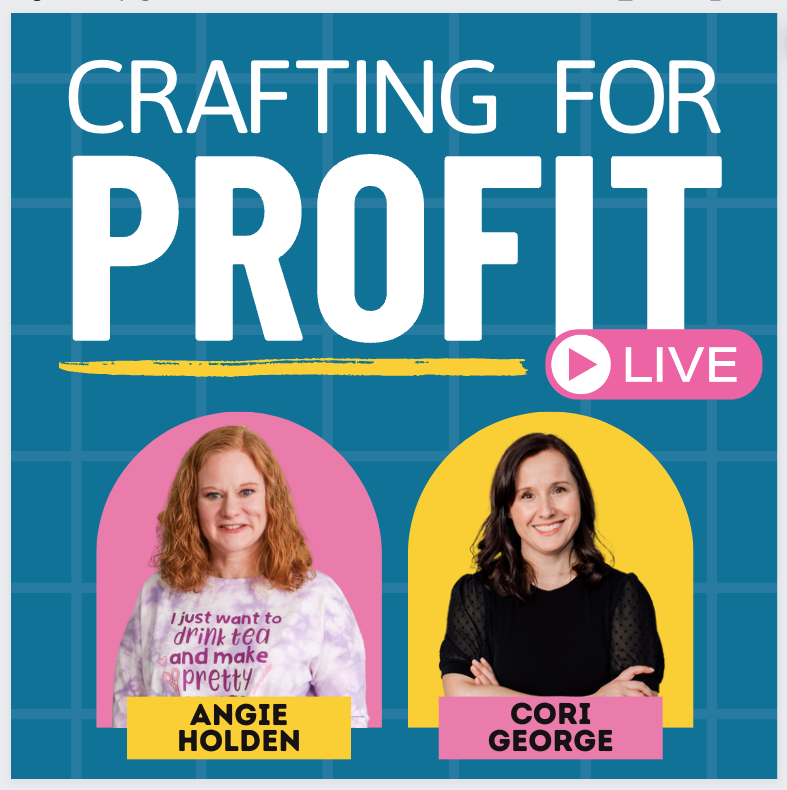
Craft your future by turning your passion into a paycheck! With more than 25 years experience and a DIY community of more than 1.5 million, Angie Holden and Cori George share handmade business strategies, craft business insights, and inspirational stories. Every other Monday, you’ll learn from experts how to use your crafts to financially support a creative life.
Click here to sign up so you don’t miss future episodes of Crafting for Profit Live!
I hope these tips help you find the best craft fairs and markets for your small business. If you have any additional questions feel free to leave them in the comments and I’ll be happy to answer them for you.
